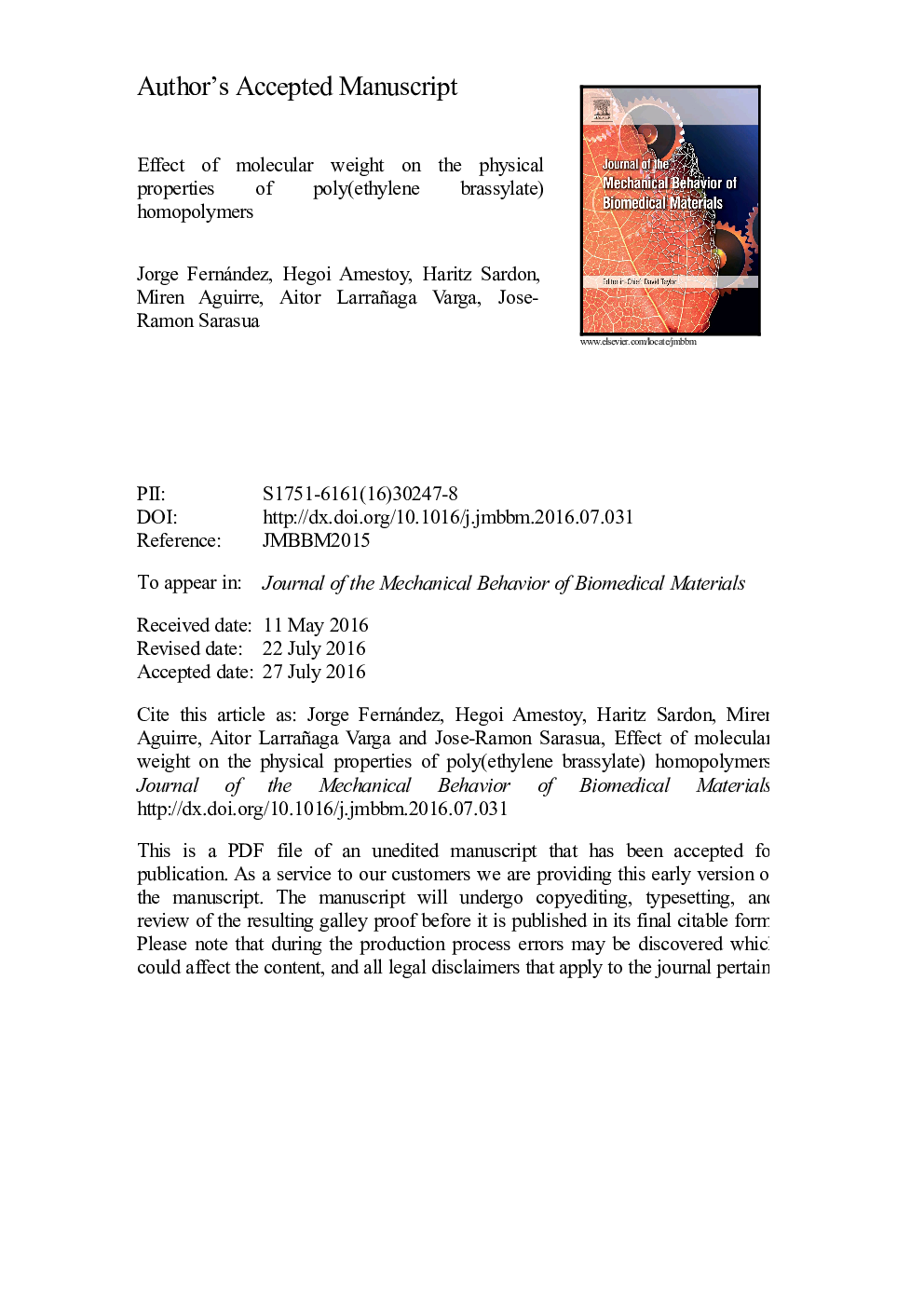| Article ID | Journal | Published Year | Pages | File Type |
|---|---|---|---|---|
| 7207696 | Journal of the Mechanical Behavior of Biomedical Materials | 2016 | 36 Pages |
Abstract
Poly(ethylene brassylate) (PEB) is a biodegradable polyester that nowadays is of particular interest owing to its poly(ε-caprolactone)-like properties (with a Tg at â30 °C and a Tm at 70 °C) and the low-cost of its monomer. However, it is not simple to achieve high molar masses with conventional catalysts. In this work, high molar mass PEBs, characterized by SEC-MALS, were successfully synthesized using triphenyl bismuth (Ph3Bi) as catalyst. Then, with the aim of evaluating the impact of the molecular weight on the physical properties, several PEBs ranging from 27 to 247 kg molâ1 were prepared. It was demonstrated that above a Mw of 90 Kg molâ1, PEB behaved in a constant manner. PEBs with lower molecular weight (<46 Kg molâ1) showed lower values of Tg (~(â35 °C)) and presented a melting peak that was split into three or four different peaks while their crystallites started to melt earlier (at ~30 °C). In addition, these PEBs were more sensitive to thermal degradation (two additional stages of degradation were observed) and, what is more important, were found to be prone to brittle fracture. As the Mw rose, the PEB samples became more ductile and those PEBs with a molecular weight above 90 Kg molâ1 possessed deformation at break values higher than 800%, secant modulus in the 296-324 range and ultimate tensile strength of >20 MPa.
Related Topics
Physical Sciences and Engineering
Engineering
Biomedical Engineering
Authors
Jorge Fernández, Hegoi Amestoy, Haritz Sardon, Miren Aguirre, Aitor Larrañaga Varga, Jose-Ramon Sarasua,
